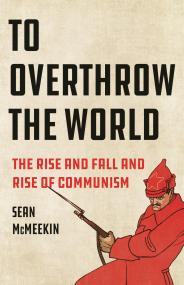By clicking “Accept,” you agree to the use of cookies and similar technologies on your device as set forth in our Cookie Policy and our Privacy Policy. Please note that certain cookies are essential for this website to function properly and do not require user consent to be deployed.
Tattered Banners
Labor, Conflict, And Corporatism In Postcommunist Russia
Contributors
Formats and Prices
Price
$36.00Format
Format:
Trade Paperback $36.00This item is a preorder. Your payment method will be charged immediately, and the product is expected to ship on or around May 17, 1996. This date is subject to change due to shipping delays beyond our control.
Also available from:
In post-Soviet Russia's transition to new political and economic systems, few issues are as important as labor. Although the “worker's paradise” may have been largely imaginary, the loss of job security and benefits that has accompanied marketization could well become a catalyst for yet another political upheaval. In this timely book, Walter Connor explores how the Yeltsin government has attempted to avoid this pitfall of system change.Connor examines Russia's emergent labor politics in the critical first years of the post-Soviet period, focusing on the problems Yeltsin has encountered in attempting to adopt a “corporatist” solution to the conflicts of interest that have arisen between labor, employers, and the state. With many employers still heavily dependent on the state, while others are already beyond state control, the corporatist effort has been sabotaged, Connor contends, by the lack of distinct interest groups found in more mature market economies. He concludes with an analysis of what these recent developments may portend for Russian politics and government in the near term.
Genre:
- On Sale
- May 17, 1996
- Page Count
- 256 pages
- Publisher
- Avalon Publishing
- ISBN-13
- 9780813329123
Newsletter Signup
By clicking ‘Sign Up,’ I acknowledge that I have read and agree to Hachette Book Group’s Privacy Policy and Terms of Use







